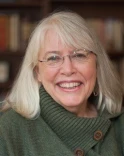Editor's Note: This is the sixth in a series of profiles of winter 2023 graduates.
For half a year during Mark Driscoll’s studies toward a Bachelor of Science in Psychology and Public Safety Administration at University of Maryland Global Campus (UMGC), he was living in one of the most isolated places on the planet.
For six months marked by near darkness 24 hours a day, the civilian fire medic and firefighter lived and worked at McMurdo Station, the U.S. research compound in Antarctica. His satellite internet connection offered speeds no faster than a DSL connection, an old technology that used telephone lines, and his limited access was shared with 136 other people at the station. He volunteered for the overnight dispatch shift on weekends so he could grab extra time on the internet to study while others were sleeping.
This winter, there is now light on the horizon for Driscoll—literally and figuratively. Back living on Maryland’s Upper Eastern Shore with his wife, an economist with the federal government, and their 5-year-old son and 4-year-old daughter, Driscoll will receive his degree at UMGC’s Winter Commencement.
The accomplishment comes two decades after he took his first college course, a psychology class at Catholic University in Washington, D.C. At the time, he was working while studying and he found it difficult to complete the lab requirements, so he abandoned the effort. It was another eight years before he enrolled at UMGC.
“I started my college process at UMGC in 2011. I took a significant time off because I was pursuing an IT career and I was trying to get an employer-paid education,” explained Driscoll, who made a mid-life career change into firefighting. “I’d take a couple of courses, then things got put on the sidelines. Fast forward to 2021 and I was studying in Antarctica.”
Driscoll said most people find it puzzling to learn that firefighters are needed at the McMurdo Station, the largest research facility near the South Pole and a working airport.
“Antarctica is the highest, driest, coldest, windiest continent,” he said. “The station receives one tanker delivery and one cargo ship each year, which provides enough supplies for approximately 18 months of operations in case there are delays on the next annual shipment. The tanker that delivered fuel to McMurdo Station prior to my arrival brought over 7 million gallons of fuel, which was a combination of jet fuel, diesel and gasoline that is stored in bulk containers that contain roughly 500,000 gallons each—and that’s not counting the quantity that was already present at the time of delivery.
“My best estimate is that McMurdo is sitting next to approximately 10 million gallons of fuel when it’s at capacity,” he explained. “If a fire breaks out, the entire community could be destroyed. And if people are displaced by fire, there are no extra buildings to put them in.”
Fire safety and prevention, he said, is a high priority at the station. But his role also included emergency medical services. During his stint at the research station, for example, one of the people assigned to airfield maintenance fell on the ice and broke his leg. It was two weeks before a military plane could safely land on the ice to rescue the patient and fly him to a surgeon at a New Zealand medical facility eight hours away. For those two weeks, the medical team had to keep the man comfortable with painkillers.
Driscoll said injuries from exposure to the cold were also a danger. And he learned—the hard way—that frozen hair, if wiped before it warm ups, will simply break off. He said you could always tell the newcomers to the station because they had no eyebrows or lashes for a time.
Why Antarctica? Driscoll said the opportunity to be an employee of the National Science Foundation in Antarctica felt like an experience that just couldn’t be passed by. His wife agreed, and they coordinated a complicated schedule across time zones so that he could do video calls with his children each week. Also, Driscoll figured the Antarctica experience would give him a career advantage. He was right.
“After spending a winter in Antarctica, I immediately had job offers coming in from around the world,” he said. He accepted a position with a fire department in Philadelphia, where he now works.
While in Antarctica, Driscoll—like everyone else in the sun-less environment—had to watch their Vitamin D levels and thyroid function. “They encourage you to stay mentally engaged so you don’t slip into a deep depression. My UMGC classes helped with that,” he noted.
He also remembers having to tell his professors that he was in Antarctica with a shaky DSL connection and if the wind blew the wrong way, he might not be able to log into classwork for a week.
Driscoll said the isolation not only gave him time to study, it also introduced him to the world’s most spectacular night sky. At the same time, the experience put him close to New Zealand, the country where his German-born mother grew up and where his servicemember father had been stationed decades earlier.
“It really inspired me to embrace my family history,” he said.
Driscoll said the takeaway from the long time it took him to earn his degree is that he set an example for his children “to finish what you start.” He would have graduated a semester earlier if he hadn’t stopped to pursue a second degree in addition to his first major and two UMGC certifications, one in public safety executive leadership and the other in clinical mental health care.
He isn’t completely sure how he will dovetail his new academic credentials with his career, although he suspects he will start to shift toward counseling firefighters, medics and others with high stress jobs. At his current job, he is part of a Critical Incident Stress Management team, which uses protocols developed expressly for people dealing with traumatic events.
